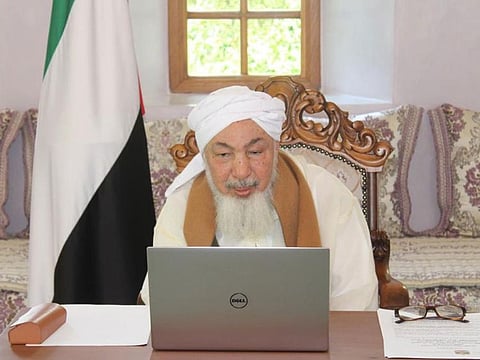COVID-19: Taraweeh prayers should be at home, clarifies UAE Fatwa Council
The Fatwa Council said Eid Al Fitr prayers should also be at home if mosques remain closed

Dubai: Residents should perform Taraweeh prayers at home during Ramadan this year, according to a decision issued by the UAE Fatwa Council.
Taraweeh prayers are special prayers during Ramadan that are conducted in mosques after every Isha prayer.
The Taraweeh prayers involve reading long chapters of the Qur’an every night, with the aim to complete the entire Quran by the end of the last day of Ramadan.
On Sunday night, the UAE Fatwa Council held a virtual meeting to discuss the latest updates related to coronavirus COVID-19, and issued five fatwas on how Ramadan should be observed.
Can Tawareeh prayers be performed outside mosques?
The UAE Fatwa Council clarified that Tawareeh prayers cannot performed outside mosques and ruled that they should be performed individually at home. However, the head of the household may lead the prayers for his family either by reciting verses memorised from the Quran, or by reading from the holy book.
What about Eid Al Fitr?
The Eid Al Fitr prayers are called “Salat Al Eid” in Arabic. On this occasion, Muslims either gather in a mosque or in an open space and offer two units of prayer, called a Rakaat. A sermon is then carried out, where the imam asks for forgiveness, mercy, and peace for every being across the world.
In a fatwa, the UAE Council said that if COVID-19 persists – and if mosques remain closed as a measure to prevent the spread of the virus – Muslims may perform Eid Al Fitr prayers individually at their homes or in a group with their direct family members without a sermon.
The Fatwa Council also warned against congregating to perform the prayers, “as this could endanger lives”, an act that is strictly forbidden in Islam.
Friday prayers
The Council asserted that Friday prayers are not permissible and said that people should perform Dhuhr prayers instead.
“Friday prayers have its own congregational requirements and if such requirements are not met due to some obstacles, then it is no longer valid,” said the UAE Fatwa Council, who was quoted by WAM.
The Council also warned against unusual practices and reminded that it is obligatory to follow the authorities' instructions to avoid gatherings, and to stop Friday prayers as a precautionary measure against the spread of COVID-19, which can increase with mass gatherings.
Zakat
Zakat is one of the five pillars of Islam. The Quran states that for every sane, adult Muslim who owns wealth over a certain amount, he or she must pay 2.5% of that wealth as Zakat.
The UAE Fatwa Council announced that Zakat can be paid earlier than usual, and given the current circumstances. Likewise, Zakat Al Firt can also be paid earlier, even at the beginning of Ramadan, according to scholars.
The Council pointed out that all types of Zakat are better spent within the country to help residents of the UAE meet their needs. They could also be paid to relevant authorities or charitable organisations, such as the Zakat Fund. If excess money remains, then the funds could be sent to needy Muslims in other countries official through organisations such as the Emirates Red Crescent and other licensed charitable organisations.
Fasting
The UAE Fatwa Council also said that it is permissible for COVID-19 patients not to fast during Ramadan, and reaffirmed the need to abide by the closure of mosques until further notice.
Frontline medical workers are also permitted not to fast while on duty if they fear that fasting could lead to the weakening of their immune system.






